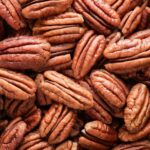Argentine soft citrus seeks to re-enter U.S. market

The Argentine citrus industry has a less-than amicable history with U.S. trade regulations. Argentine lemon and soft citrus imports were halted in 2001, barely a year after entering the U.S. market, with APHIS citing phytosanitary requirements.
While lemons were readmitted in 2018, soft citrus remained banned, a move that, Argentineans say, lacks scientific justification and infringes World Trade Agreements.
Argentine Citrus Federation (Federcitrus) President José Carbonell tells FreshFruitPortal.com that, while politics shouldn’t be involved in the matter, the “inexplicable” character of the ban has led them to view the issue more as a “political decision” than a regulatory problem.
Related articles: Argentine cherry sector upbeat as season begins
“Our citrus is grown in the same regions as Uruguayan citrus. And Uruguay has had access to the U.S. for years and there is no explanation for this," he says.
Carbonell indicates that Argentina has just made a presentation to the World Trade Organization (WTO) on this issue, hoping to resume negotiations. However, he fears that as the country transitions to a new president, the sense of urgency may be lost.
"It is really inexplicable that we have the difficulty we’re having to finish this long process for soft citrus. APHIS is asking for conditions, presentations, demonstrations and we have complied with all that over the years. Our SENASA has been very consistent, along with the support of the Foreign Ministry of Argentina, which have worked very responsibly on this issue. Today there is no duty to fulfill, everything is done and the market should be opened," Carbonell adds.
The U.S. is one of the top destination markets for most South American fruit growers, one that the Argentine agricultural sector hopes to rebuild.
"Argentina has all the conditions to export fruit of excellent quality. We have had good results with lemons, because our offer is filling a consumption gap and we are confident that with oranges and, to a lesser extent, mandarins, the same will happen,” Carbonell says.









































